Environment Configuration Details:
Operating System: Oracle Linux 6.3 64 Bit
Oracle Database Software version to be installed : 12.1.0.2
RAC: YES (2 - Node Setup)
DNS: No
To install Oracle RDBMS 12c RAC, you must install Oracle Grid Infrastructure (Oracle Clusterware and Oracle ASM) 12c first on your cluster. Refer below link Step by Step Installation and Configuration of Oracle 12c RAC on Linux 6 - Part - I to install GRID 12c RAC software step by step.
Steps to install Oracle 12c RAC Database Software -- Part - II
Points to be checked before starting RAC Database Installation prerequisites:
1) Am I downloading Oracle DB software of correct version?
2) Is my database certified on current Operating System ?
3) Is my database software architecture 32 bit or 64 bit ?
4) Is Operating System architecture 32 bit or 64 bit ?
5) Is Operating System Kernel Version compatible with software to be installed?
2) Is my database certified on current Operating System ?
3) Is my database software architecture 32 bit or 64 bit ?
4) Is Operating System architecture 32 bit or 64 bit ?
5) Is Operating System Kernel Version compatible with software to be installed?
6) Is my server runlevel 3 or 5 ?
7) Oracle strongly recommends to disable Transparent HugePages and use standard HugePages for enhanced performance.
8) The Oracle Clusterware version must be equal to or greater than the Oracle RAC Database Software version that you installed.
9) Use identical server hardware on each node, to simplify server maintenance.
Step 1: Certification Matrix
You can see Oracle 12.1.0.2 Real Application Clusters is certified on Oracle Linux 6.
Supported kernel versions for Oracle Linux 6:
- Update 2 or higher, 2.6.39-200.24.1.el6uek.x86_64 or later UEK2 kernels
- Update 4 or higher, 3.8.13-16 or later UEK3 kernels
- Update 7 or higher, 4.1.12-32 or later UEK4 kernels
- Oracle Linux 6 with the Red Hat Compatible kernel: 2.6.32-71.el6.x86_64 or later
Step 2: Hardware Requirement
You can initiate mail to customer with below hardware requirement to configure Oracle 12.1.0.2 RAC on Linux 6.
Note: Below are the minimum requirements for installation purpose only. You can later increase it as per the business requirement.
Please note that GRID Infrastructure is already installed in our previous post. Here, I am installing RDBMS software along with database creation. Hence, below requirement is for RDBMS software installation and DB creation.
You can user common operating system user i.e. oracle as both Grid Infrastructure owner or RDBMS software owner OR separate users i.e. grid as Grid Infrastructure owner or oracle as RDBMS software owner.
Here, I am using two different users grid and oracle for role separation purpose.
Similarly, you can use separate mount-point for both oracle RDBMS home or Grid Infrastructure home OR you can use common mount-point for storing Oracle RDBMS or GI binaries. Here, I am using common mount-point for storing both RDBMS and GI binaries.
- 200 GB space is given considering GRID+Oracle software and future patches. Here, I have configured only 50 GB space for storing GRID+ORACLE setup files on on testing environment.
|
Minimum Requirement for configuring Oracle 12.1.0.2 Two Node RAC on Linux - Database Software
|
||
|
Specification Name
|
Node1
|
Node2
|
|
Hardware Requirement
|
||
|
Physical RAM (GB)
|
4
|
4
|
|
Swap (GB)
|
4
|
4
|
|
CPUs
|
2
|
2
|
|
|
||
|
Storage requirement
|
||
|
DATA
|
500 GB * 2 disks
|
Shared
|
|
REDO1
|
50 GB * 1 disk
|
Shared
|
|
REDO2
|
50 GB * 1 disk
|
Shared
|
|
ARCH
|
500 GB * 1 disk
|
Shared
|
|
/u01
|
200 GB * disk
|
Non-Shared
|
|
/backup
|
500 * 2 disks
|
Non-Shared
|
#Check Operating System details and /etc/hosts file on all three RAC nodes for any changes. Node1: [oracle@rac1 ~]$ id uid=54321(oracle) gid=54321(oinstall) groups=54321(oinstall),2100(asmadmin),2300(oper),2400(asmdba),2500(asmoper),54322(dba) [oracle@rac1 ~]$ uname -a Linux rac1.localdomain 2.6.39-200.24.1.el6uek.x86_64 #1 SMP Sat Jun 23 02:39:07 EDT 2012 x86_64 x86_64 x86_64 GNU/Linux [oracle@rac1 ~]$ cat /etc/redhat-release Red Hat Enterprise Linux Server release 6.3 (Santiago) [oracle@rac1 ~]$ cat /etc/hosts 127.0.0.1 localhost localhost.localdomain localhost4 localhost4.localdomain4 ::1 localhost localhost.localdomain localhost6 localhost6.localdomain6 192.168.28.1 rac1.localdomain rac1 192.168.28.2 rac2.localdomain rac2 192.168.1.11 rac1-priv.localdomain rac1-priv 192.168.1.12 rac2-priv.localdomain rac2-priv 192.168.28.101 rac1-vip.localdomain rac1-vip 192.168.28.102 rac2-vip.localdomain rac2-vip 192.168.28.201 rac-scan.localdomain rac-scan 192.168.28.202 rac-scan.localdomain rac-scan 192.168.28.203 rac-scan.localdomain rac-scan [oracle@rac1 ~]$ cat /etc/sysctl.conf | grep -v "#" fs.file-max = 6815744 kernel.sem = 250 32000 100 128 kernel.shmmni = 4096 kernel.shmall = 1073741824 kernel.shmmax = 4398046511104 net.core.rmem_default = 262144 net.core.rmem_max = 4194304 net.core.wmem_default = 262144 net.core.wmem_max = 1048576 fs.aio-max-nr = 1048576 net.ipv4.ip_local_port_range = 9000 65500 [oracle@rac1 ~]$ cat /etc/security/limits.conf | grep -v "#" grid soft nofile 1024 grid hard nofile 65536 grid soft nproc 2047 grid hard nproc 16384 grid soft stack 10240 grid hard stack 32768 oracle soft nofile 1024 oracle hard nofile 65536 oracle soft nproc 2047 oracle hard nproc 16384 oracle soft stack 10240 oracle hard stack 32768 oracle soft memlock 3145728 oracle hard memlock 3145728 [oracle@rac1 ~]$ cat /etc/selinux/config | grep -v "#" SELINUX=disabled SELINUXTYPE=targeted Node2: [oracle@rac2 ~]$ id uid=54321(oracle) gid=54321(oinstall) groups=54321(oinstall),2100(asmadmin),2300(oper),2400(asmdba),2500(asmoper),54322(dba) [oracle@rac2 ~]$ uname -a Linux rac2.localdomain 2.6.39-200.24.1.el6uek.x86_64 #1 SMP Sat Jun 23 02:39:07 EDT 2012 x86_64 x86_64 x86_64 GNU/Linux [oracle@rac2 ~]$ cat /etc/redhat-release Red Hat Enterprise Linux Server release 6.3 (Santiago) [oracle@rac2 ~]$ cat /etc/hosts 127.0.0.1 localhost localhost.localdomain localhost4 localhost4.localdomain4 ::1 localhost localhost.localdomain localhost6 localhost6.localdomain6 192.168.28.1 rac1.localdomain rac1 192.168.28.2 rac2.localdomain rac2 192.168.1.11 rac1-priv.localdomain rac1-priv 192.168.1.12 rac2-priv.localdomain rac2-priv 192.168.28.101 rac1-vip.localdomain rac1-vip 192.168.28.102 rac2-vip.localdomain rac2-vip 192.168.28.201 rac-scan.localdomain rac-scan 192.168.28.202 rac-scan.localdomain rac-scan 192.168.28.203 rac-scan.localdomain rac-scan [oracle@rac2 ~]$ cat /etc/sysctl.conf | grep -v "#" fs.file-max = 6815744 kernel.sem = 250 32000 100 128 kernel.shmmni = 4096 kernel.shmall = 1073741824 kernel.shmmax = 4398046511104 net.core.rmem_default = 262144 net.core.rmem_max = 4194304 net.core.wmem_default = 262144 net.core.wmem_max = 1048576 fs.aio-max-nr = 1048576 net.ipv4.ip_local_port_range = 9000 65500 [oracle@rac2 ~]$ cat /etc/security/limits.conf | grep -v "#" grid soft nofile 1024 grid hard nofile 65536 grid soft nproc 2047 grid hard nproc 16384 grid soft stack 10240 grid hard stack 32768 oracle soft nofile 1024 oracle hard nofile 65536 oracle soft nproc 2047 oracle hard nproc 16384 oracle soft stack 10240 oracle hard stack 32768 oracle soft memlock 3145728 oracle hard memlock 3145728 [oracle@rac2 ~]$ cat /etc/selinux/config | grep -v "#" SELINUX=disabled SELINUXTYPE=targeted |
#Create directories for storing RDBMS binaries. Node1: [root@rac1 ~]# id uid=0(root) gid=0(root) groups=0(root),492(sfcb) [root@rac1 ~]# mkdir -p /u01/app/oracle/product/12.1.0.2/dbhome_1 [root@rac1 ~]# chown -R oracle:oinstall /u01/app/oracle/product/12.1.0.2/dbhome_1 [root@rac1 ~]# chmod -R 755 /u01/app/oracle/product/12.1.0.2/dbhome_1 [root@rac1 ~]# ls -ld /u01/app/oracle/product/12.1.0.2/dbhome_1 drwxr-xr-x 2 oracle oinstall 4096 Feb 23 12:00 /u01/app/oracle/product/12.1.0.2/dbhome_1 [root@rac1 ~]# id grid uid=54323(grid) gid=54321(oinstall) groups=54321(oinstall),54322(dba),2100(asmadmin),2300(oper),2400(asmdba),2500(asmoper) [root@rac1 ~]# id oracle uid=54321(oracle) gid=54321(oinstall) groups=54321(oinstall),54322(dba),2100(asmadmin),2300(oper),2400(asmdba),2500(asmoper) Node2: [root@rac2 ~]# id uid=0(root) gid=0(root) groups=0(root),492(sfcb) [root@rac2 ~]# mkdir -p /u01/app/oracle/product/12.1.0.2/dbhome_1 [root@rac2 ~]# chown -R oracle:oinstall /u01/app/oracle/product/12.1.0.2/dbhome_1 [root@rac2 ~]# chmod -R 755 /u01/app/oracle/product/12.1.0.2/dbhome_1 [root@rac2 ~]# ls -ld /u01/app/oracle/product/12.1.0.2/dbhome_1 drwxr-xr-x 2 oracle oinstall 4096 Feb 23 12:01 /u01/app/oracle/product/12.1.0.2/dbhome_1 [root@rac2 ~]# id grid uid=54323(grid) gid=54321(oinstall) groups=54321(oinstall),54322(dba),2100(asmadmin),2300(oper),2400(asmdba),2500(asmoper) [root@rac2 ~]# id oracle uid=54321(oracle) gid=54321(oinstall) groups=54321(oinstall),54322(dba),2100(asmadmin),2300(oper),2400(asmdba),2500(asmoper) |
Step 3: Download below softwares and unzip the same.
- RDBMS Database Software
- Latest patches with required opatch
- Latest cluvfy version
|
#Copy the downloaded setup file to target server. Login as oracle user and unzip the same. [oracle@rac1 ~]$ su - Password: [root@rac1 ~]# cd /media/sf_Oracle_12c_RAC/ [root@rac1 sf_Oracle_12c_RAC]# ls -ltr -rwxrwx--- 1 root vboxsf 1673544724 Jan 15 2016 V46095_oracle 12c-01_1_of_2.zip -rwxrwx--- 1 root vboxsf 1014530602 Jan 15 2016 V46095-oracle 12c-01_2_of_2.zip -rwxrwx--- 1 root vboxsf 1747043545 Jan 15 2016 V46096_oracle_grid_oracle_grid_01_1_of_2.zip -rwxrwx--- 1 root vboxsf 646972897 Jan 15 2016 V46096_oracle_grid_oracle_grid_01_2_of_2.zip -rwxrwx--- 1 root vboxsf 260683 Jan 20 13:11 Oracle 12c RAC Installation.docx -rwxrwx--- 1 root vboxsf 34045 Feb 1 15:00 cluvfy_text_1.txt -rwxrwx--- 1 root vboxsf 34045 Feb 1 15:37 cluvfy_text.txt -rwxrwx--- 1 root vboxsf 500 Feb 2 11:38 welcome.html -rwxrwx--- 1 root vboxsf 17078 Feb 2 12:27 Minimum Requirement for configuring Oracle 12.docx drwxrwx--- 1 root vboxsf 40960 Feb 23 11:29 screenshots [root@rac1 sf_Oracle_12c_RAC]# cp V46095*.zip /u01/setup/oracle/ [root@rac1 sf_Oracle_12c_RAC]# cd /u01/setup/oracle [root@rac1 oracle]# ls -ltr -rwxr-x--- 1 root root 1673544724 Feb 28 20:08 V46095_oracle 12c-01_1_of_2.zip -rwxr-x--- 1 root root 1014530602 Feb 28 20:08 V46095-oracle 12c-01_2_of_2.zip [root@rac1 oracle]# chmod 777 * [root@rac1 oracle]# ls -ltr -rwxrwxrwx 1 root root 1673544724 Feb 28 20:08 V46095_oracle 12c-01_1_of_2.zip -rwxrwxrwx 1 root root 1014530602 Feb 28 20:08 V46095-oracle 12c-01_2_of_2.zip [root@rac1 oracle]# su - oracle [oracle@rac1 ~]$ cd /u01/setup/oracle [oracle@rac1 oracle]$ id uid=54321(oracle) gid=54321(oinstall) groups=54321(oinstall),2100(asmadmin),2300(oper),2400(asmdba),2500(asmoper),54322(dba) [oracle@rac1 oracle]$ [oracle@rac1 oracle]$ unzip V46095_oracle\ 12c-01_1_of_2.zip Archive: V46095_oracle 12c-01_1_of_2.zip creating: database/ creating: database/rpm/ inflating: database/rpm/cvuqdisk-1.0.9-1.rpm creating: database/response/ inflating: database/response/netca.rsp inflating: database/response/db_install.rsp inflating: database/response/dbca.rsp .... creating: database/stage/sizes/ extracting: database/stage/sizes/oracle.server.SE.sizes.properties inflating: database/stage/sizes/oracle.server12.1.0.2.0Custom.sizes.properties inflating: database/stage/sizes/oracle.server12.1.0.2.0EE.sizes.properties extracting: database/stage/sizes/oracle.server.EE.sizes.properties inflating: database/stage/sizes/oracle.server.12.1.0.2.0.sizes.properties inflating: database/stage/sizes/oracle.server12.1.0.2.0SE.sizes.properties extracting: database/stage/sizes/oracle.server.Custom.sizes.properties [oracle@rac1 oracle]$ [oracle@rac1 oracle]$ ls -ltr drwxr-xr-x 7 oracle oinstall 4096 Jul 7 2014 database -rwxrwxrwx 1 root root 1673544724 Feb 28 20:08 V46095_oracle 12c-01_1_of_2.zip -rwxrwxrwx 1 root root 1014530602 Feb 28 20:08 V46095-oracle 12c-01_2_of_2.zip [oracle@rac1 oracle]$ unzip V46095-oracle\ 12c-01_2_of_2.zip Archive: V46095-oracle 12c-01_2_of_2.zip creating: database/stage/Components/oracle.ctx/ creating: database/stage/Components/oracle.ctx/12.1.0.2.0/ creating: database/stage/Components/oracle.ctx/12.1.0.2.0/1/ creating: database/stage/Components/oracle.ctx/12.1.0.2.0/1/DataFiles/ inflating: database/stage/Components/oracle.ctx/12.1.0.2.0/1/DataFiles/filegroup3.jar inflating: database/stage/Components/oracle.ctx/12.1.0.2.0/1/DataFiles/filegroup15.25.1.jar ...... creating: database/stage/Components/oracle.javavm.containers/ creating: database/stage/Components/oracle.javavm.containers/12.1.0.2.0/ creating: database/stage/Components/oracle.javavm.containers/12.1.0.2.0/1/ creating: database/stage/Components/oracle.javavm.containers/12.1.0.2.0/1/DataFiles/ inflating: database/stage/Components/oracle.javavm.containers/12.1.0.2.0/1/DataFiles/filegroup2.jar inflating: database/stage/Components/oracle.javavm.containers/12.1.0.2.0/1/DataFiles/filegroup1.jar inflating: database/install/.oui [oracle@rac1 oracle]$ [oracle@rac1 oracle]$ ls -ltr drwxr-xr-x 7 oracle oinstall 4096 Jul 7 2014 database -rwxrwxrwx 1 root root 1673544724 Feb 28 20:08 V46095_oracle 12c-01_1_of_2.zip -rwxrwxrwx 1 root root 1014530602 Feb 28 20:08 V46095-oracle 12c-01_2_of_2.zip [oracle@rac1 oracle]$ cd database [oracle@rac1 database]$ df -Th . Filesystem Type Size Used Avail Use% Mounted on /dev/mapper/vg_rac1-lv_root ext4 50G 20G 28G 41% / [oracle@rac1 database]$ ls -ltr -rwxr-xr-x 1 oracle oinstall 500 Feb 7 2013 welcome.html -rwxr-xr-x 1 oracle oinstall 8533 Jul 7 2014 runInstaller drwxr-xr-x 2 oracle oinstall 4096 Jul 7 2014 rpm drwxrwxr-x 2 oracle oinstall 4096 Jul 7 2014 sshsetup drwxrwxr-x 2 oracle oinstall 4096 Jul 7 2014 response drwxr-xr-x 14 oracle oinstall 4096 Jul 7 2014 stage drwxr-xr-x 4 oracle oinstall 4096 Feb 28 20:15 install |
Step 4: Configure SSH authentication or passwordless configuration or user authentication for oracle user.
|
[oracle@rac1 ~]$ cd /home/oracle [oracle@rac2 ~]$ cd /home/oracle [oracle@rac1 ~]$ rm -rf .ssh [oracle@rac2 ~]$ rm -rf .ssh [oracle@rac1 ~]$ mkdir .ssh [oracle@rac2 ~]$ mkdir .ssh [oracle@rac1 ~]$ chmod 700 .ssh [oracle@rac2 ~]$ chmod 700 .ssh [oracle@rac1 ~]$ cd .ssh [oracle@rac2 ~]$ cd .ssh [oracle@rac1 .ssh]$ ssh-keygen -t rsa [oracle@rac1 .ssh]$ ssh-keygen -t dsa [oracle@rac2 .ssh]$ ssh-keygen -t rsa [oracle@rac2 .ssh]$ ssh-keygen -t dsa [oracle@rac1 .ssh]$ cat *.pub >> authorized_keys.rac1 [oracle@rac2 .ssh]$ cat *.pub >> authorized_keys.rac2 [oracle@rac1 .ssh]$ scp authorized_keys.rac1 oracle@rac2:/home/oracle/.ssh/ [oracle@rac2 .ssh]$ scp authorized_keys.rac2 oracle@rac1:/home/oracle/.ssh/ [oracle@rac1 .ssh]$ cat *.rac* >> authorized_keys [oracle@rac2 .ssh]$ cat *.rac* >> authorized_keys [oracle@rac1 .ssh]$ chmod 600 authorized_keys [oracle@rac2 .ssh]$ chmod 600 authorized_keys [oracle@rac1 .ssh]$ ll [oracle@rac2 .ssh]$ ll [oracle@rac1 .ssh]$ ssh rac1 [oracle@rac1 .ssh]$ ssh rac2 [oracle@rac2 .ssh]$ ssh rac2 [oracle@rac2 .ssh]$ ssh rac1 #Node1 Output: [oracle@rac2 ~]$ id uid=54321(oracle) gid=54321(oinstall) groups=54321(oinstall),2100(asmadmin),2300(oper),2400(asmdba),2500(asmoper),54322(dba) [oracle@rac1 ~]$ cd /home/oracle [oracle@rac1 ~]$ rm -rf .ssh [oracle@rac1 ~]$ mkdir .ssh [oracle@rac1 ~]$ chmod 700 .ssh [oracle@rac1 ~]$ cd .ssh [oracle@rac1 .ssh]$ ssh-keygen -t rsa Generating public/private rsa key pair. Enter file in which to save the key (/home/oracle/.ssh/id_rsa): Enter passphrase (empty for no passphrase): Enter same passphrase again: Your identification has been saved in /home/oracle/.ssh/id_rsa. Your public key has been saved in /home/oracle/.ssh/id_rsa.pub. The key fingerprint is: 16:5c:b2:55:0b:7a:26:2c:e5:07:8a:b7:f1:d2:19:70 oracle@rac1.localdomain The key's randomart image is: +--[ RSA 2048]----+ | . E +.. | | . O B . . | | . = X + . | | . * O | | o S | | o | | | | | | | +-----------------+ [oracle@rac1 .ssh]$ ssh-keygen -t dsa Generating public/private dsa key pair. Enter file in which to save the key (/home/oracle/.ssh/id_dsa): Enter passphrase (empty for no passphrase): Enter same passphrase again: Your identification has been saved in /home/oracle/.ssh/id_dsa. Your public key has been saved in /home/oracle/.ssh/id_dsa.pub. The key fingerprint is: 06:e4:1f:89:76:31:bd:f9:51:0a:3c:2d:cd:f9:12:9b oracle@rac1.localdomain The key's randomart image is: +--[ DSA 1024]----+ | . oo + . | | o . +* * . | | = + * B | | . + .o E . | | S . o | | . . | | | | | | | +-----------------+ [oracle@rac1 .ssh]$ cat *.pub >> authorized_keys.rac1 [oracle@rac1 .ssh]$ scp authorized_keys.rac1 oracle@rac2:/home/oracle/.ssh/ The authenticity of host 'rac2 (192.168.28.2)' can't be established. RSA key fingerprint is f8:9d:df:cf:65:f2:74:2c:a6:38:05:64:2b:b9:fc:8e. Are you sure you want to continue connecting (yes/no)? yes Warning: Permanently added 'rac2,192.168.28.2' (RSA) to the list of known hosts. oracle@rac2's password: authorized_keys.rac1 100% 1018 1.0KB/s 00:00 [oracle@rac1 .ssh]$ cat *.rac* >> authorized_keys [oracle@rac1 .ssh]$ chmod 600 authorized_keys [oracle@rac1 .ssh]$ ll -rw------- 1 oracle oinstall 2036 Feb 28 20:26 authorized_keys -rw-r--r-- 1 oracle oinstall 1018 Feb 28 20:25 authorized_keys.rac1 -rw-r--r-- 1 oracle oinstall 1018 Feb 28 20:25 authorized_keys.rac2 -rw------- 1 oracle oinstall 668 Feb 28 20:24 id_dsa -rw-r--r-- 1 oracle oinstall 613 Feb 28 20:24 id_dsa.pub -rw------- 1 oracle oinstall 1675 Feb 28 20:24 id_rsa -rw-r--r-- 1 oracle oinstall 405 Feb 28 20:24 id_rsa.pub -rw-r--r-- 1 oracle oinstall 399 Feb 28 20:25 known_hosts #Verify ssh connection from Node1 to Node1 and Node1 to Node2. [oracle@rac1 .ssh]$ ssh rac1 The authenticity of host 'rac1 (192.168.28.1)' can't be established. RSA key fingerprint is f8:9d:df:cf:65:f2:74:2c:a6:38:05:64:2b:b9:fc:8e. Are you sure you want to continue connecting (yes/no)? yes Warning: Permanently added 'rac1,192.168.28.1' (RSA) to the list of known hosts. [oracle@rac1 ~]$ ssh rac2 #Node2 Output: [oracle@rac1 ~]$ id uid=54321(oracle) gid=54321(oinstall) groups=54321(oinstall),2100(asmadmin),2300(oper),2400(asmdba),2500(asmoper),54322(dba) [oracle@rac2 ~]$ cd /home/oracle [oracle@rac2 ~]$ rm -rf .ssh [oracle@rac2 ~]$ mkdir .ssh [oracle@rac2 ~]$ chmod 700 .ssh [oracle@rac2 ~]$ cd .ssh [oracle@rac2 .ssh]$ ssh-keygen -t rsa Generating public/private rsa key pair. Enter file in which to save the key (/home/oracle/.ssh/id_rsa): Enter passphrase (empty for no passphrase): Enter same passphrase again: Your identification has been saved in /home/oracle/.ssh/id_rsa. Your public key has been saved in /home/oracle/.ssh/id_rsa.pub. The key fingerprint is: 8c:db:d9:17:7b:ed:ed:36:83:48:a0:5b:cd:91:dc:a9 oracle@rac2.localdomain The key's randomart image is: +--[ RSA 2048]----+ | | | | | . o . | | o . + o | | . S + + | | + + E o . | | . = o + o .| | . o o +o| | o*| +-----------------+ [oracle@rac2 .ssh]$ ssh-keygen -t dsa Generating public/private dsa key pair. Enter file in which to save the key (/home/oracle/.ssh/id_dsa): Enter passphrase (empty for no passphrase): Enter same passphrase again: Your identification has been saved in /home/oracle/.ssh/id_dsa. Your public key has been saved in /home/oracle/.ssh/id_dsa.pub. The key fingerprint is: 56:17:9a:46:35:d7:fb:77:e8:13:6d:19:bb:22:15:7c oracle@rac2.localdomain The key's randomart image is: +--[ DSA 1024]----+ | ..+ .. | | . o + .| | = o .| | o . o E | | S oo=| | . .oo*| | .. o+| | . .o. | | . .. | +-----------------+ [oracle@rac2 .ssh]$ cat *.pub >> authorized_keys.rac2 [oracle@rac2 .ssh]$ scp authorized_keys.rac2 oracle@rac1:/home/oracle/.ssh/ The authenticity of host 'rac1 (192.168.28.1)' can't be established. RSA key fingerprint is f8:9d:df:cf:65:f2:74:2c:a6:38:05:64:2b:b9:fc:8e. Are you sure you want to continue connecting (yes/no)? yes Warning: Permanently added 'rac1,192.168.28.1' (RSA) to the list of known hosts. oracle@rac1's password: authorized_keys.rac2 100% 1018 1.0KB/s 00:00 [oracle@rac2 .ssh]$ cat *.rac* >> authorized_keys [oracle@rac2 .ssh]$ chmod 600 authorized_keys [oracle@rac2 .ssh]$ ll -rw------- 1 oracle oinstall 2036 Feb 28 20:26 authorized_keys -rw-r--r-- 1 oracle oinstall 1018 Feb 28 20:25 authorized_keys.rac1 -rw-r--r-- 1 oracle oinstall 1018 Feb 28 20:25 authorized_keys.rac2 -rw------- 1 oracle oinstall 668 Feb 28 20:24 id_dsa -rw-r--r-- 1 oracle oinstall 613 Feb 28 20:24 id_dsa.pub -rw------- 1 oracle oinstall 1675 Feb 28 20:24 id_rsa -rw-r--r-- 1 oracle oinstall 405 Feb 28 20:24 id_rsa.pub -rw-r--r-- 1 oracle oinstall 399 Feb 28 20:25 known_hosts #Verify ssh connection from Node2 to Node2 and Node2 to Node1. [oracle@rac2 .ssh]$ ssh rac2 The authenticity of host 'rac2 (192.168.28.2)' can't be established. RSA key fingerprint is f8:9d:df:cf:65:f2:74:2c:a6:38:05:64:2b:b9:fc:8e. Are you sure you want to continue connecting (yes/no)? yes Warning: Permanently added 'rac2,192.168.28.2' (RSA) to the list of known hosts. Last login: Wed Feb 28 20:26:43 2024 from rac1.localdomain [oracle@rac2 ~]$ ssh rac1 Last login: Wed Feb 28 20:26:34 2024 from rac1.localdomain |
Step 5: Login as a oracle user and start the installation.
Go to the setup location and execute ./runInstaller.
Here, you can install database software as well as DB creation by selecting 1st option. I have selected 2nd option which is "Install database software only" and will create database later after installation.
Select 2nd option for Real Application Cluster.Here, select proper ORACLE_BASE and ORACLE_HOME. Below are the default locations.
|
1) Task resolv.conf Integrity - This task checks consistency of file /etc/resolv.conf file across nodes Check Failed on Nodes: [rac2, rac1] Verification result of failed node: rac2 Details: -PRVF-5636 : The DNS response time for an unreachable node exceeded "15000" ms on following nodes: rac1,rac2 - Cause: The DNS response time for an unreachable node exceeded the value specified on nodes specified. - Action: Make sure that ''options timeout'', ''options attempts'' and ''nameserver'' entries in file resolv.conf are proper. On HPUX these entries will be ''retrans'', ''retry'' and ''nameserver''. On Solaris these will be ''options retrans'', ''options retry'' and ''nameserver''. Make sure that the DNS server responds back to name lookup request within the specified time when looking up an unknown host name. -Check for integrity of file "/etc/resolv.conf" failed - Cause:Cause Of Problem Not Available - Action:User Action Not Available Verification result of failed node: rac1 Details: -PRVF-5636 : The DNS response time for an unreachable node exceeded "15000" ms on following nodes: rac1,rac2 - Cause: The DNS response time for an unreachable node exceeded the value specified on nodes specified. - Action: Make sure that ''options timeout'', ''options attempts'' and ''nameserver'' entries in file resolv.conf are proper. On HPUX these entries will be ''retrans'', ''retry'' and ''nameserver''. On Solaris these will be ''options retrans'', ''options retry'' and ''nameserver''. Make sure that the DNS server responds back to name lookup request within the specified time when looking up an unknown host name. -Check for integrity of file "/etc/resolv.conf" failed - Cause:Cause Of Problem Not Available - Action:User Action Not Available 2)Single Client Access Name (SCAN) - This test verifies the Single Client Access Name configuration. Error: -PRVG-1101 : SCAN name "rac-scan" failed to resolve - Cause: An attempt to resolve specified SCAN name to a list of IP addresses failed because SCAN could not be resolved in DNS or GNS using ''nslookup''. - Action: Check whether the specified SCAN name is correct. If SCAN name should be resolved in DNS, check the configuration of SCAN name in DNS. If it should be resolved in GNS make sure that GNS resource is online. -PRVF-4657 : Name resolution setup check for "rac-scan" (IP address: 192.168.28.201) failed - Cause: Inconsistent IP address definitions found for the SCAN name identified using DNS and configured name resolution mechanism(s). - Action: Look up the SCAN name with nslookup, and make sure the returned IP addresses are consistent with those defined in NIS and /etc/hosts as configured in /etc/nsswitch.conf by reconfiguring the latter. Check the Name Service Cache Daemon (/usr/sbin/nscd) by clearing its cache and restarting it. -PRVF-4657 : Name resolution setup check for "rac-scan" (IP address: 192.168.28.202) failed - Cause: Inconsistent IP address definitions found for the SCAN name identified using DNS and configured name resolution mechanism(s). - Action: Look up the SCAN name with nslookup, and make sure the returned IP addresses are consistent with those defined in NIS and /etc/hosts as configured in /etc/nsswitch.conf by reconfiguring the latter. Check the Name Service Cache Daemon (/usr/sbin/nscd) by clearing its cache and restarting it. -PRVF-4657 : Name resolution setup check for "rac-scan" (IP address: 192.168.28.203) failed - Cause: Inconsistent IP address definitions found for the SCAN name identified using DNS and configured name resolution mechanism(s). - Action: Look up the SCAN name with nslookup, and make sure the returned IP addresses are consistent with those defined in NIS and /etc/hosts as configured in /etc/nsswitch.conf by reconfiguring the latter. Check the Name Service Cache Daemon (/usr/sbin/nscd) by clearing its cache and restarting it. Check Failed on Nodes: [rac2, rac1] Verification result of failed node: rac2 Details: -PRVF-4664 : Found inconsistent name resolution entries for SCAN name "rac-scan" - Cause: The nslookup utility and the configured name resolution mechanisms, as defined in /etc/nsswitch.conf, returned inconsistent IP address information for the SCAN name identified. - Action: Check the Name Service Cache Daemon (/usr/sbin/nscd), the Domain Name Server (nslookup) and the /etc/hosts file to make sure the IP address for the SCAN names is registered correctly. Clear the stale IP addresses from the name service cache using the command ''/usr/sbin/nscd -i hosts''. Verification result of failed node: rac1 Details: -PRVF-4664 : Found inconsistent name resolution entries for SCAN name "rac-scan" - Cause: The nslookup utility and the configured name resolution mechanisms, as defined in /etc/nsswitch.conf, returned inconsistent IP address information for the SCAN name identified. - Action: Check the Name Service Cache Daemon (/usr/sbin/nscd), the Domain Name Server (nslookup) and the /etc/hosts file to make sure the IP address for the SCAN names is registered correctly. Clear the stale IP addresses from the name service cache using the command ''/usr/sbin/nscd -i hosts''.
|
Ignore above error messages since we are not using DNS, but do not ignore it for actual production servers where DNS is used. Here, tick "Ignore All" option and click on Next to continue.
During installation, you will get pop-up box for root.sh script execution for both nodes. Execute the root.sh script on 1st node, execute root.sh on 2nd node, and then click on OK to continue.
|
[root@rac1 ~]# id uid=0(root) gid=0(root) groups=0(root),492(sfcb) [root@rac1 ~]# /u01/app/oracle/product/12.1.0.2/dbhome_1/root.sh Performing root user operation. The following environment variables are set as: ORACLE_OWNER= oracle ORACLE_HOME= /u01/app/oracle/product/12.1.0.2/dbhome_1 Enter the full pathname of the local bin directory: [/usr/local/bin]: The contents of "dbhome" have not changed. No need to overwrite. The contents of "oraenv" have not changed. No need to overwrite. The contents of "coraenv" have not changed. No need to overwrite. Entries will be added to the /etc/oratab file as needed by Database Configuration Assistant when a database is created Finished running generic part of root script. Now product-specific root actions will be performed. [root@rac2 ~]# id uid=0(root) gid=0(root) groups=0(root),492(sfcb) [root@rac2 ~]# /u01/app/oracle/product/12.1.0.2/dbhome_1/root.sh Performing root user operation. The following environment variables are set as: ORACLE_OWNER= oracle ORACLE_HOME= /u01/app/oracle/product/12.1.0.2/dbhome_1 Enter the full pathname of the local bin directory: [/usr/local/bin]: The contents of "dbhome" have not changed. No need to overwrite. The contents of "oraenv" have not changed. No need to overwrite. The contents of "coraenv" have not changed. No need to overwrite. Entries will be added to the /etc/oratab file as needed by Database Configuration Assistant when a database is created Finished running generic part of root script. |
Step 6: Allocate storage for database creation.
|
/dev/sde: 5368 MB - Redo1 /dev/sdh: 5368 MB - Redo2 /dev/sdf: 10.7 GB - Data1 /dev/sdg: 10.7 GB - Data2 /dev/sdi: 5368 MB - ARCH /dev/sde: 5368 MB - Redo1 /dev/sdh: 5368 MB - Redo2 /dev/sdf: 10.7 GB - Data1 /dev/sdg: 10.7 GB - Data2 /dev/sdi: 5368 MB - ARCH [root@rac1 ~]# fdisk -l Disk /dev/sda: 64.4 GB, 64424509440 bytes 255 heads, 63 sectors/track, 7832 cylinders Units = cylinders of 16065 * 512 = 8225280 bytes Sector size (logical/physical): 512 bytes / 512 bytes I/O size (minimum/optimal): 512 bytes / 512 bytes Disk identifier: 0x0004fb69 Device Boot Start End Blocks Id System /dev/sda1 * 1 64 512000 83 Linux Partition 1 does not end on cylinder boundary. /dev/sda2 64 7833 62401536 8e Linux LVM Disk /dev/sdb: 10.7 GB, 10737418240 bytes 255 heads, 63 sectors/track, 1305 cylinders Units = cylinders of 16065 * 512 = 8225280 bytes Sector size (logical/physical): 512 bytes / 512 bytes I/O size (minimum/optimal): 512 bytes / 512 bytes Disk identifier: 0xcbefd982 Device Boot Start End Blocks Id System /dev/sdb1 1 1305 10482381 83 Linux Disk /dev/sdc: 10.7 GB, 10737418240 bytes 255 heads, 63 sectors/track, 1305 cylinders Units = cylinders of 16065 * 512 = 8225280 bytes Sector size (logical/physical): 512 bytes / 512 bytes I/O size (minimum/optimal): 512 bytes / 512 bytes Disk identifier: 0x3e4c8b4b Device Boot Start End Blocks Id System /dev/sdc1 1 1305 10482381 83 Linux Disk /dev/sdd: 10.7 GB, 10737418240 bytes 255 heads, 63 sectors/track, 1305 cylinders Units = cylinders of 16065 * 512 = 8225280 bytes Sector size (logical/physical): 512 bytes / 512 bytes I/O size (minimum/optimal): 512 bytes / 512 bytes Disk identifier: 0xa4cfdb6d Device Boot Start End Blocks Id System /dev/sdd1 1 1305 10482381 83 Linux Disk /dev/sde: 5368 MB, 5368709120 bytes 255 heads, 63 sectors/track, 652 cylinders Units = cylinders of 16065 * 512 = 8225280 bytes Sector size (logical/physical): 512 bytes / 512 bytes I/O size (minimum/optimal): 512 bytes / 512 bytes Disk identifier: 0x00000000 Disk /dev/sdh: 5368 MB, 5368709120 bytes 255 heads, 63 sectors/track, 652 cylinders Units = cylinders of 16065 * 512 = 8225280 bytes Sector size (logical/physical): 512 bytes / 512 bytes I/O size (minimum/optimal): 512 bytes / 512 bytes Disk identifier: 0x00000000 Disk /dev/sdg: 10.7 GB, 10737418240 bytes 255 heads, 63 sectors/track, 1305 cylinders Units = cylinders of 16065 * 512 = 8225280 bytes Sector size (logical/physical): 512 bytes / 512 bytes I/O size (minimum/optimal): 512 bytes / 512 bytes Disk identifier: 0x00000000 Disk /dev/sdf: 10.7 GB, 10737418240 bytes 255 heads, 63 sectors/track, 1305 cylinders Units = cylinders of 16065 * 512 = 8225280 bytes Sector size (logical/physical): 512 bytes / 512 bytes I/O size (minimum/optimal): 512 bytes / 512 bytes Disk identifier: 0x00000000 Disk /dev/sdi: 5368 MB, 5368709120 bytes 255 heads, 63 sectors/track, 652 cylinders Units = cylinders of 16065 * 512 = 8225280 bytes Sector size (logical/physical): 512 bytes / 512 bytes I/O size (minimum/optimal): 512 bytes / 512 bytes Disk identifier: 0x00000000 Disk /dev/mapper/vg_rac1-lv_root: 53.7 GB, 53687091200 bytes 255 heads, 63 sectors/track, 6527 cylinders Units = cylinders of 16065 * 512 = 8225280 bytes Sector size (logical/physical): 512 bytes / 512 bytes I/O size (minimum/optimal): 512 bytes / 512 bytes Disk identifier: 0x00000000 Disk /dev/mapper/vg_rac1-lv_swap: 4160 MB, 4160749568 bytes 255 heads, 63 sectors/track, 505 cylinders Units = cylinders of 16065 * 512 = 8225280 bytes Sector size (logical/physical): 512 bytes / 512 bytes I/O size (minimum/optimal): 512 bytes / 512 bytes Disk identifier: 0x00000000 Disk /dev/mapper/vg_rac1-lv_home: 6048 MB, 6048186368 bytes 255 heads, 63 sectors/track, 735 cylinders Units = cylinders of 16065 * 512 = 8225280 bytes Sector size (logical/physical): 512 bytes / 512 bytes I/O size (minimum/optimal): 512 bytes / 512 bytes Disk identifier: 0x00000000 [root@rac1 ~]# fdisk /dev/sde Device contains neither a valid DOS partition table, nor Sun, SGI or OSF disklabel Building a new DOS disklabel with disk identifier 0xff3e2aba. Changes will remain in memory only, until you decide to write them. After that, of course, the previous content won't be recoverable. Warning: invalid flag 0x0000 of partition table 4 will be corrected by w(rite) WARNING: DOS-compatible mode is deprecated. It's strongly recommended to switch off the mode (command 'c') and change display units to sectors (command 'u'). Command (m for help): n Command action e extended p primary partition (1-4) p Partition number (1-4): 1 First cylinder (1-652, default 1): Using default value 1 Last cylinder, +cylinders or +size{K,M,G} (1-652, default 652): Using default value 652 Command (m for help): w The partition table has been altered! Calling ioctl() to re-read partition table. Syncing disks. [root@rac1 ~]# fdisk /dev/sdh Device contains neither a valid DOS partition table, nor Sun, SGI or OSF disklabel Building a new DOS disklabel with disk identifier 0xc9bc6979. Changes will remain in memory only, until you decide to write them. After that, of course, the previous content won't be recoverable. Warning: invalid flag 0x0000 of partition table 4 will be corrected by w(rite) WARNING: DOS-compatible mode is deprecated. It's strongly recommended to switch off the mode (command 'c') and change display units to sectors (command 'u'). Command (m for help): n Command action e extended p primary partition (1-4) p Partition number (1-4): 1 First cylinder (1-652, default 1): Using default value 1 Last cylinder, +cylinders or +size{K,M,G} (1-652, default 652): Using default value 652 Command (m for help): w The partition table has been altered! Calling ioctl() to re-read partition table. Syncing disks. [root@rac1 ~]# fdisk /dev/sdg Device contains neither a valid DOS partition table, nor Sun, SGI or OSF disklabel Building a new DOS disklabel with disk identifier 0xb719723b. Changes will remain in memory only, until you decide to write them. After that, of course, the previous content won't be recoverable. Warning: invalid flag 0x0000 of partition table 4 will be corrected by w(rite) WARNING: DOS-compatible mode is deprecated. It's strongly recommended to switch off the mode (command 'c') and change display units to sectors (command 'u'). Command (m for help): Command (m for help): n Command action e extended p primary partition (1-4) p Partition number (1-4): 1 First cylinder (1-1305, default 1): Using default value 1 Last cylinder, +cylinders or +size{K,M,G} (1-1305, default 1305): Using default value 1305 Command (m for help): w The partition table has been altered! Calling ioctl() to re-read partition table. Syncing disks. [root@rac1 ~]# fdisk /dev/sdf Device contains neither a valid DOS partition table, nor Sun, SGI or OSF disklabel Building a new DOS disklabel with disk identifier 0xf50ef49e. Changes will remain in memory only, until you decide to write them. After that, of course, the previous content won't be recoverable. Warning: invalid flag 0x0000 of partition table 4 will be corrected by w(rite) WARNING: DOS-compatible mode is deprecated. It's strongly recommended to switch off the mode (command 'c') and change display units to sectors (command 'u'). Command (m for help): n Command action e extended p primary partition (1-4) p Partition number (1-4): 1 First cylinder (1-1305, default 1): Using default value 1 Last cylinder, +cylinders or +size{K,M,G} (1-1305, default 1305): Using default value 1305 Command (m for help): w The partition table has been altered! Calling ioctl() to re-read partition table. Syncing disks. [root@rac1 ~]# fdisk /dev/sdi Device contains neither a valid DOS partition table, nor Sun, SGI or OSF disklabel Building a new DOS disklabel with disk identifier 0x7c934da1. Changes will remain in memory only, until you decide to write them. After that, of course, the previous content won't be recoverable. Warning: invalid flag 0x0000 of partition table 4 will be corrected by w(rite) WARNING: DOS-compatible mode is deprecated. It's strongly recommended to switch off the mode (command 'c') and change display units to sectors (command 'u'). Command (m for help): n Command action e extended p primary partition (1-4) p Partition number (1-4): 1 First cylinder (1-652, default 1): Using default value 1 Last cylinder, +cylinders or +size{K,M,G} (1-652, default 652): Using default value 652 Command (m for help): w The partition table has been altered! Calling ioctl() to re-read partition table. Syncing disks. [root@rac1 ~]# fdisk -l /dev/sde Disk /dev/sde: 5368 MB, 5368709120 bytes 255 heads, 63 sectors/track, 652 cylinders Units = cylinders of 16065 * 512 = 8225280 bytes Sector size (logical/physical): 512 bytes / 512 bytes I/O size (minimum/optimal): 512 bytes / 512 bytes Disk identifier: 0xff3e2aba Device Boot Start End Blocks Id System /dev/sde1 1 652 5237158+ 83 Linux [root@rac1 ~]# fdisk -l /dev/sdf Disk /dev/sdf: 10.7 GB, 10737418240 bytes 255 heads, 63 sectors/track, 1305 cylinders Units = cylinders of 16065 * 512 = 8225280 bytes Sector size (logical/physical): 512 bytes / 512 bytes I/O size (minimum/optimal): 512 bytes / 512 bytes Disk identifier: 0xf50ef49e Device Boot Start End Blocks Id System /dev/sdf1 1 1305 10482381 83 Linux [root@rac1 ~]# fdisk -l /dev/sdg Disk /dev/sdg: 10.7 GB, 10737418240 bytes 255 heads, 63 sectors/track, 1305 cylinders Units = cylinders of 16065 * 512 = 8225280 bytes Sector size (logical/physical): 512 bytes / 512 bytes I/O size (minimum/optimal): 512 bytes / 512 bytes Disk identifier: 0xb719723b Device Boot Start End Blocks Id System /dev/sdg1 1 1305 10482381 83 Linux [root@rac1 ~]# fdisk -l /dev/sdh Disk /dev/sdh: 5368 MB, 5368709120 bytes 255 heads, 63 sectors/track, 652 cylinders Units = cylinders of 16065 * 512 = 8225280 bytes Sector size (logical/physical): 512 bytes / 512 bytes I/O size (minimum/optimal): 512 bytes / 512 bytes Disk identifier: 0xc9bc6979 Device Boot Start End Blocks Id System /dev/sdh1 1 652 5237158+ 83 Linux [root@rac1 ~]# fdisk -l /dev/sdi Disk /dev/sdi: 5368 MB, 5368709120 bytes 255 heads, 63 sectors/track, 652 cylinders Units = cylinders of 16065 * 512 = 8225280 bytes Sector size (logical/physical): 512 bytes / 512 bytes I/O size (minimum/optimal): 512 bytes / 512 bytes Disk identifier: 0x7c934da1 Device Boot Start End Blocks Id System /dev/sdi1 1 652 5237158+ 83 Linux [root@rac1 ~]# oracleasm listdisks OCRDISK1 OCRDISK2 OCRDISK3 [root@rac1 ~]# oracleasm createdisk REDO1 /dev/sde1 Writing disk header: done Instantiating disk: done [root@rac1 ~]# oracleasm createdisk REDO2 /dev/sdh Device "/dev/sdh" is not a partition [root@rac1 ~]# oracleasm createdisk REDO2 /dev/sdh1 Writing disk header: done Instantiating disk: done [root@rac1 ~]# oracleasm createdisk DATA1 /dev/sdf1 Writing disk header: done Instantiating disk: done [root@rac1 ~]# oracleasm createdisk DATA2 /dev/sdg1 Writing disk header: done Instantiating disk: done [root@rac1 ~]# oracleasm createdisk ARCH /dev/sdi1 Writing disk header: done Instantiating disk: done [root@rac1 ~]# oracleasm listdisks ARCH DATA1 DATA2 OCRDISK1 OCRDISK2 OCRDISK3 REDO1 REDO2 [root@rac2 ~]# oracleasm listdisks OCRDISK1 OCRDISK2 OCRDISK3 [root@rac2 ~]# oracleasm scandisks Reloading disk partitions: done Cleaning any stale ASM disks... Scanning system for ASM disks... Instantiating disk "REDO1" Instantiating disk "DATA1" Instantiating disk "ARCH" Instantiating disk "DATA2" Instantiating disk "REDO2" [root@rac2 ~]# oracleasm listdisks ARCH DATA1 DATA2 OCRDISK1 OCRDISK2 OCRDISK3 REDO1 |
Step 7: Create disk groups (DATA, ARCH, REDO1, REDO2).
Please note that I have allocated space considering my testing environment. Please refer the actual space requirement for your production environment.
Source the environment variables for ASM instance and execute command asmca to create disk groups.
Finally, you will receive message "Disk Group DATA created successfully".
Click on X mark to close the ASMCA window.
You can verify the disk group status and space details as below:
[grid@rac1 ~]$ id
uid=54323(grid) gid=54321(oinstall) groups=54321(oinstall),2100(asmadmin),2300(oper),2400(asmdba),2500(asmoper),54322(dba)
[grid@rac1 ~]$ . oraenv
ORACLE_SID = [grid] ? +ASM1
The Oracle base has been set to /u01/app/grid
[grid@rac1 ~]$ asmcmd lsdg
State Type Rebal Sector Block AU Total_MB Free_MB Req_mir_free_MB Usable_file_MB Offline_disks Voting_files Name
MOUNTED EXTERN N 512 4096 1048576 5114 5018 0 5018 0 N ARCH/
MOUNTED EXTERN N 512 4096 1048576 20472 20373 0 20373 0 N DATA/
MOUNTED NORMAL N 512 4096 4194304 30708 21320 10236 5542 0 Y DG_OCR/
MOUNTED EXTERN N 512 4096 1048576 5114 5018 0 5018 0 N REDO1/
MOUNTED EXTERN N 512 4096 1048576 5114 5018 0 5018 0 N REDO2/
Step 8: Login as a oracle user and execute dbca to create and configure database.
You can uncheck the cluvfy, EM Express, and EM Cloud Control if not required.
In below screen, one of the validation check failed "Cluster Validation Checks". Upon further checking, you can see this is because of SCAN so you can ignore this as you are not using DNS.
Single Client Access Name (SCAN)PRVF-4664 : Found inconsistent name resolution entries for SCAN name "rac-scan"PRVF-4664 : Found inconsistent name resolution entries for SCAN name "rac-scan" Cluster Verification check failed on nodes: rac2,rac1. This test verifies the Single Client Access Name configuration.
Below is the DB creation logfile location and also, you can monitor your DB alert log file.
$ORACLE_BASE/cfgtoollogs/dbca/DB_UNIQUE_NAME/CloneRmanRestore.log
|
#Database creation is done. You can verify DB status as below: [oracle@rac1 bin]$ ps -ef | grep pmon grid 4877 1 0 Mar04 ? 00:00:00 asm_pmon_+ASM1 grid 6530 1 0 Mar04 ? 00:00:00 mdb_pmon_-MGMTDB oracle 10558 1 0 00:03 ? 00:00:00 ora_pmon_mydb1 oracle 12277 13883 0 00:07 pts/0 00:00:00 grep pmon [oracle@rac1 bin]$ cat /etc/oratab +ASM1:/u01/app/12.1.0.2/grid:N # line added by Agent -MGMTDB:/u01/app/12.1.0.2/grid:N # line added by Agent mydb:/u01/app/oracle/product/12.1.0.2/dbhome_1:N # line added by Agent [oracle@rac1 bin]$ . oraenv ORACLE_SID = [oracle] ? mydb1 ORACLE_HOME = [/home/oracle] ? /u01/app/oracle/product/12.1.0.2/dbhome_1 The Oracle base has been set to /u01/app/oracle [oracle@rac1 bin]$ sqlplus / as sysdba SQL*Plus: Release 12.1.0.2.0 Production on Tue Mar 5 00:08:39 2024 Copyright (c) 1982, 2014, Oracle. All rights reserved. Connected to: Oracle Database 12c Enterprise Edition Release 12.1.0.2.0 - 64bit Production With the Partitioning, Real Application Clusters, Automatic Storage Management, OLAP, Advanced Analytics and Real Application Testing options SQL> set lines 300 pages 3000 SQL> select name,db_unique_name,database_role,controlfile_type,open_mode from gv$database; NAME DB_UNIQUE_NAME DATABASE_ROLE CONTROL OPEN_MODE ------ --------------- -------------- ------- ---------- MYDB mydb PRIMARY CURRENT READ WRITE MYDB mydb PRIMARY CURRENT READ WRITE |
Thanks for reading this post ! Please comment if you like this post ! Click on FOLLOW to get future blog updates !
































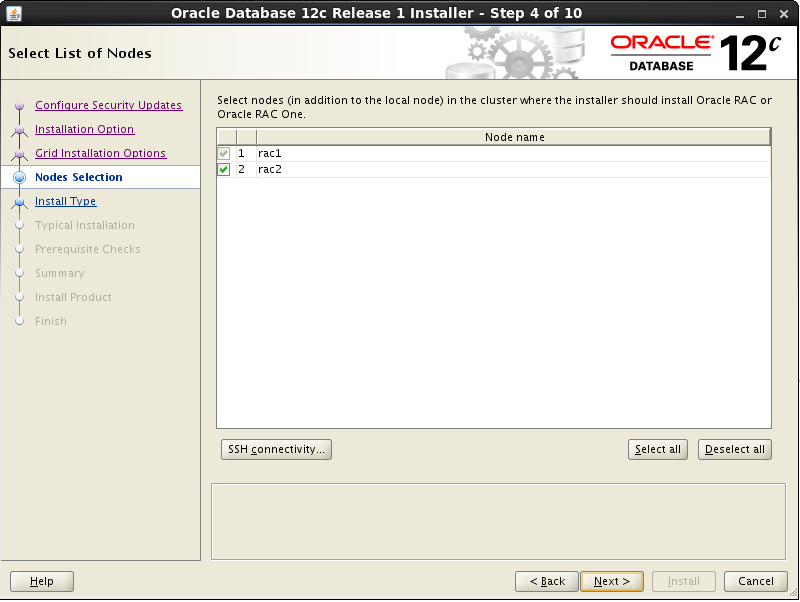








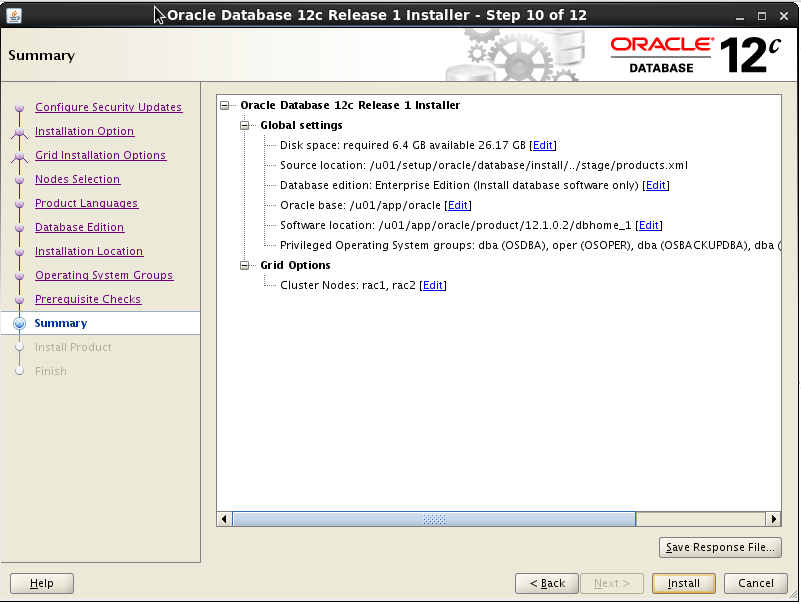




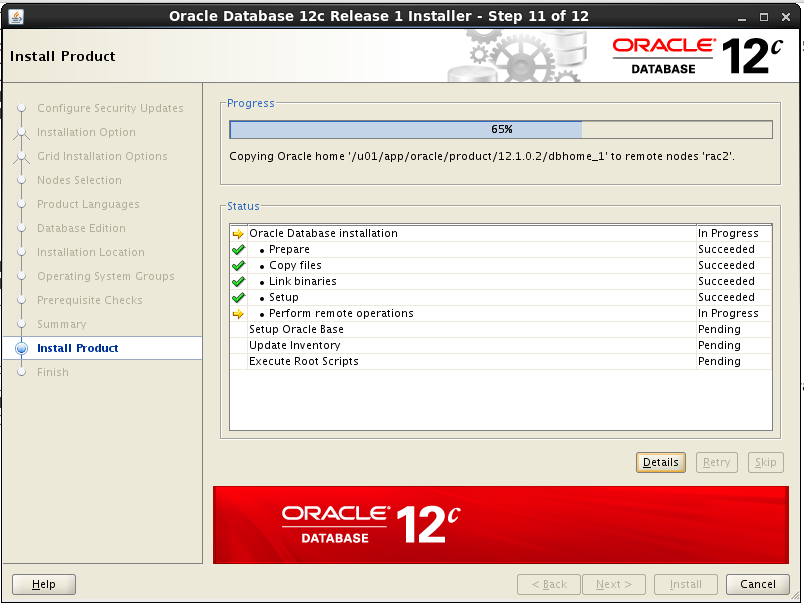












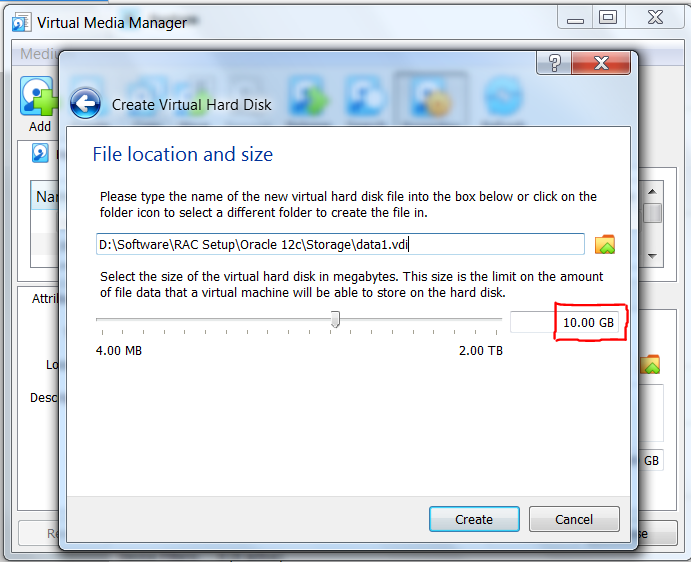





























































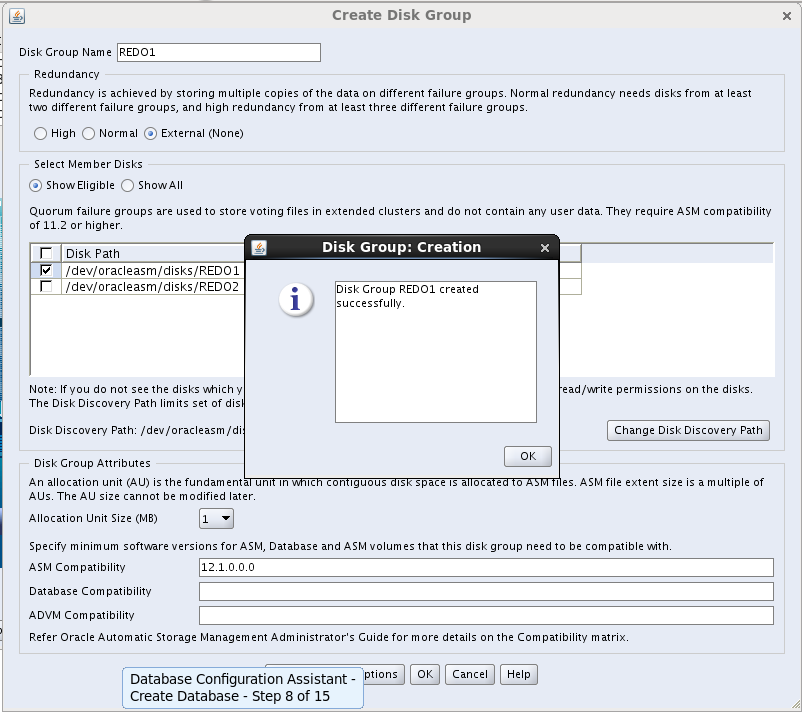







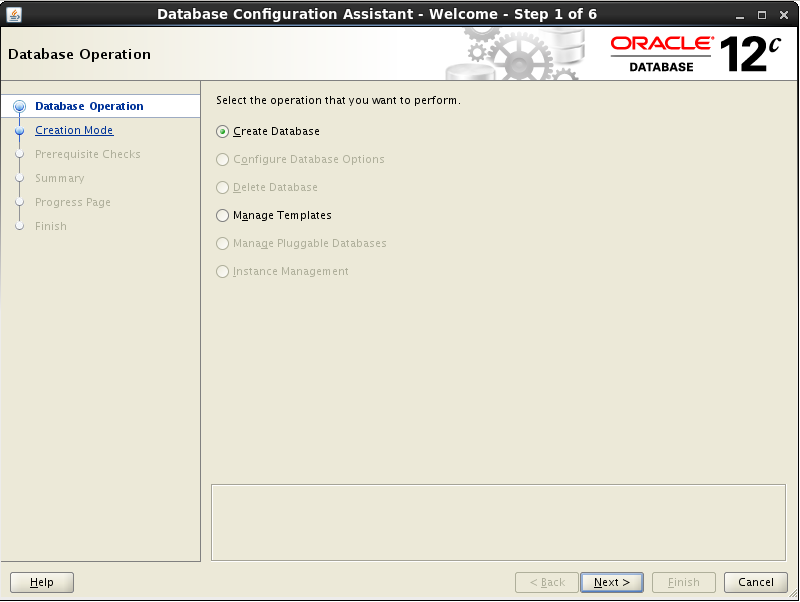











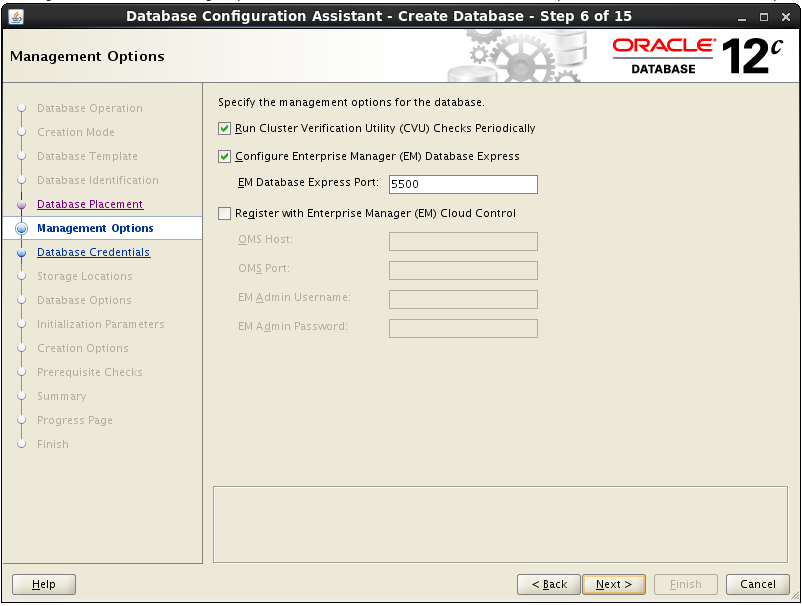

















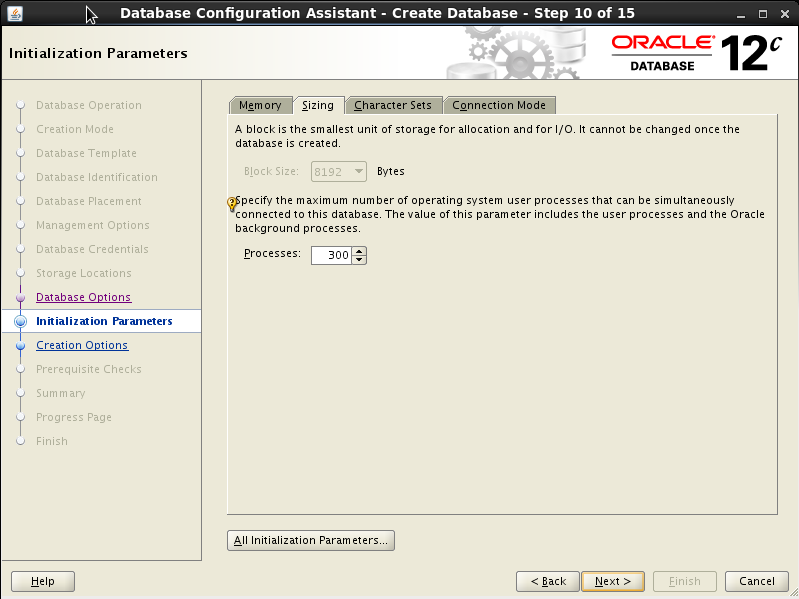

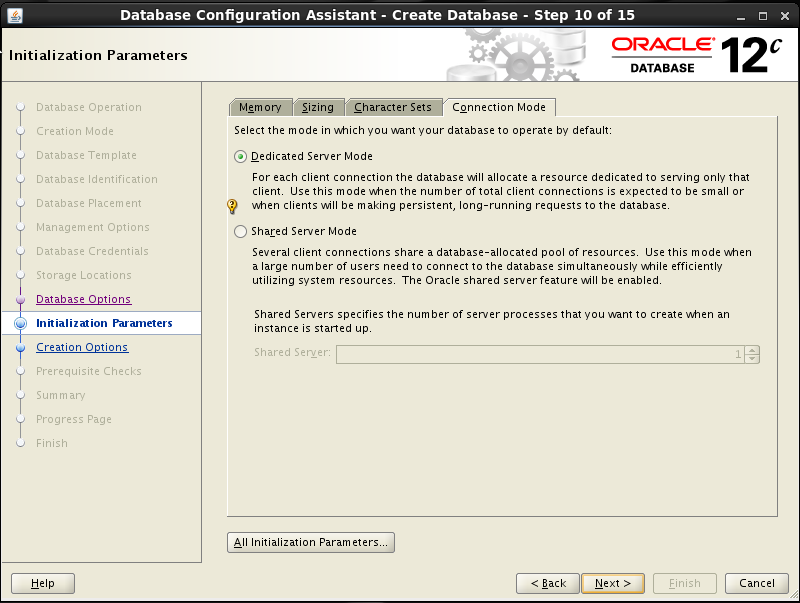










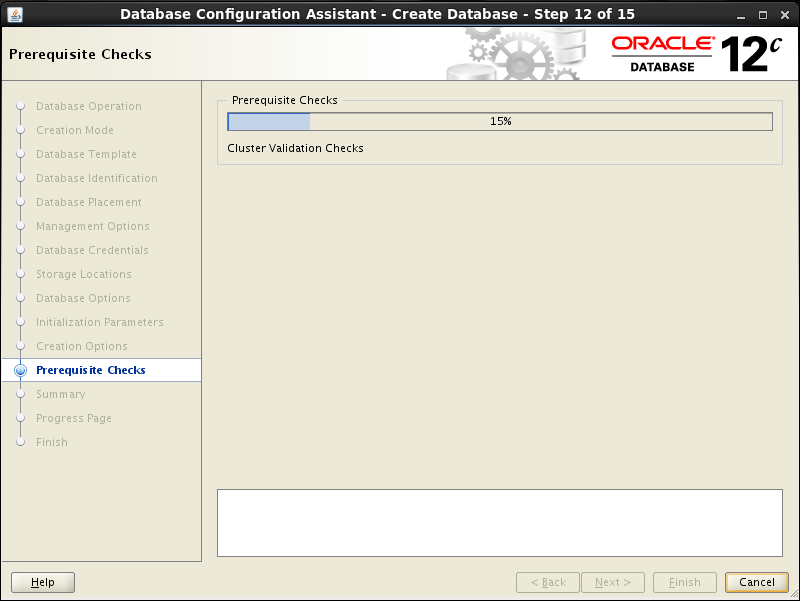

























Thank you for visiting my blog ! Thanks for your comment !